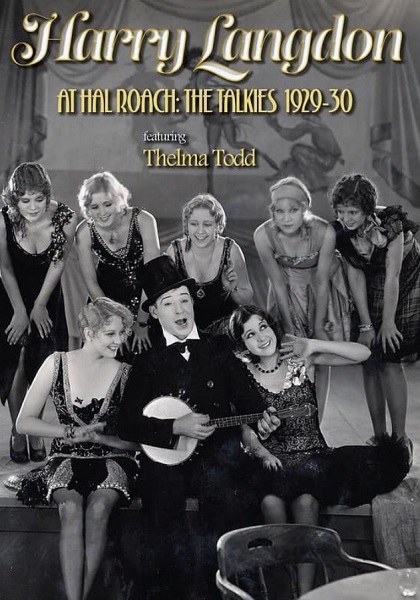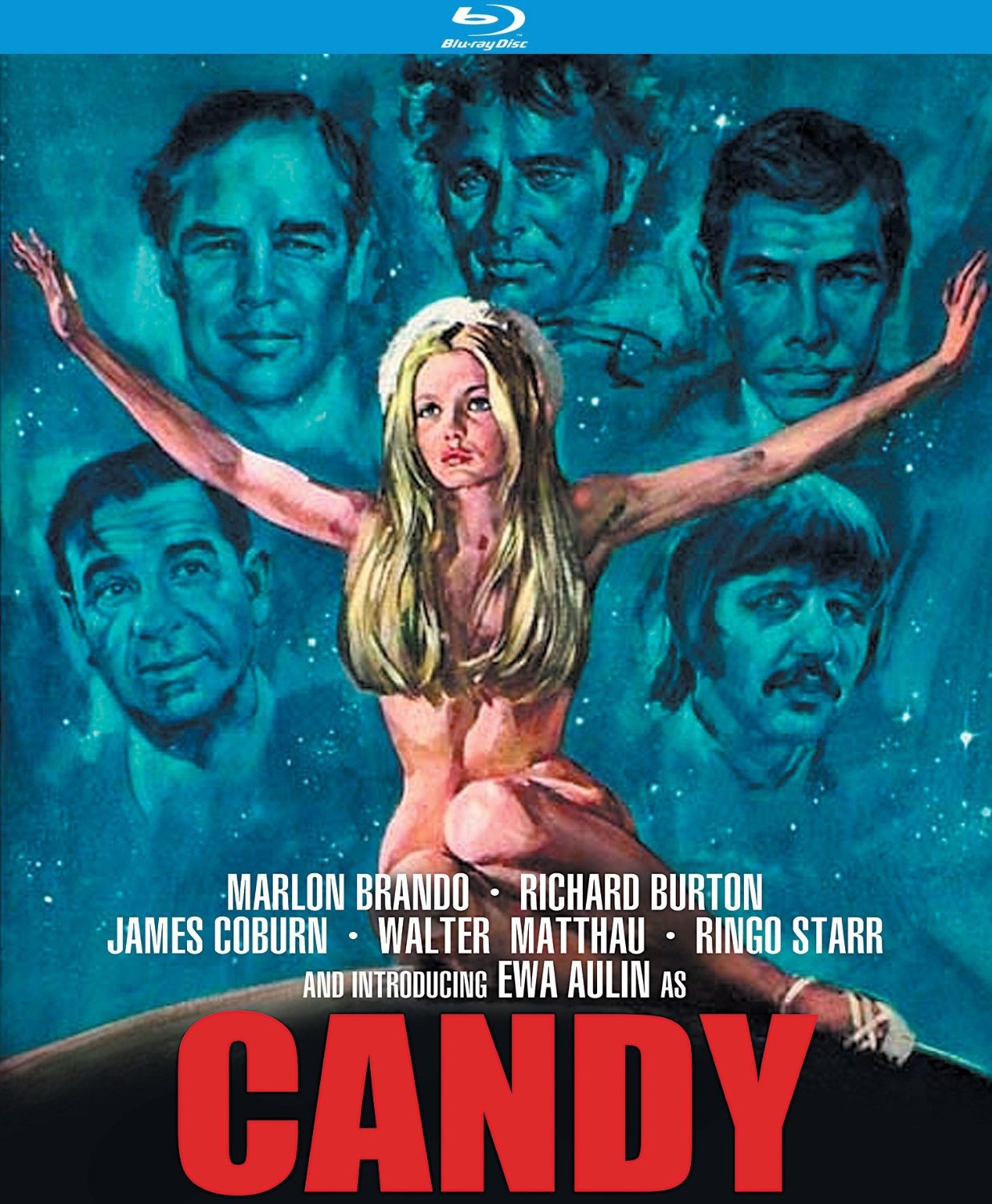Harry Langdon (1884-1944) is one of the most famous “warning tales” of classic Hollywood, not brought down by a sex scandal or messy personal life so much as his own hubris: he’s one of those comics who was very difficult to work with, and while he’s best known today for his comedies (some of which were hilarious) he’s equally famous for firing Frank Capra, after which Langdon’s fall was fast and hard. After the silent era, he was kicked around from Hal Roach to Educational to Columbia and never lived long enough to see himself or his name rehabilitated. The new set from Kit Parker/The Sprocket Vault probably won't help much, but the commentary might.
Short bio: Harry hailed from Iowa, and found work as a performer drawing crowds for medicine shows, performing as a carnival acrobat, whatever he could find in front of a group of people. Eventually, he and his wife Rose worked up a vaudeville sketch in which he buys a new car over her objections; the car then proceeds to fall apart, explode, catch fire, run up the wall, whatever. Sounds like a funny act, and they played it for years and years. Eventually, he got noticed by the movies, and settled with Mack Sennett. His first five films were pilot films or unreleased, and it was actually his sixth film that was the first to hit theatres. He left Sennett, graduated to features, did very well with writer/director Capra, decided he was Chaplin, fired Capra one morning, and by noon that day he was washed up. He spent the rest of his career, not as Chaplin, but as Buster Keaton, appearing in Poverty Row shorts, supporting bits in features, Columbia 2-reelers, and writing Laurel & Hardy gags. He dropped dead three days before Christmas, 1944 at age 60.
Obviously, when you fire Frank Capra, you've done something not very good for your films, generally speaking, and Langdon's fall was so fast it was more like an train wreck than a career downturn. Of course, part of that was the rise of talkies, and Harry's character, to me, isn't childlike in talking pictures, he's moronic in a way Laurel & Hardy aren't. They're simple, but not brainless. Some of Langdon's '40s work, though, is quite good: I liked him in the few Columbia shorts I've seen him in, and in a feature called House of Errors he was good enough to think he might've had a career on into the TV era, had he lived past 60.
Writers have been attempting to describe Langdon’s screen persona for decades without much luck; he’s some sort of other-dimensional character trying to exist in our world but not quite being on the same page as everyone else. Some of his silent films, particularly the early shorts for Sennett and the features Tramp, Tramp, Tramp and The Strong Man are brilliant. But after his final silents crashed and burned, he found himself unemployed until Hal Roach took a chance and signed him for one season, eight 2-reelers (plus a special pilot one-reeler made with Thelma Todd). All eight films (plus the phonetic Spanish version of one of them) and the pilot are included on the new 2-disc set from Kit Parker Films/Sprocket Vault.
The films Langdon made for Roach during the 1929-30 season have mostly had their detractors over the years; never easy to see in the first place, and considering their rivals in the Roach canon include Laurel & Hardy, Charley Chase, and Our Gang, the Langdons have invariably disappointed. This set will help correct that; these are superior prints of early talkies (a couple are missing their soundtracks, with subtitles – not intertitles – created especially for this release, along with appropriate music) and the commentary by Richard M. Roberts is a big selling point for the set, as he knows and shares everything anybody could possibly want to know about these comedies. As for the films themselves, none are classics and none are likely to resuscitate Harry’s career, yet all of them have moments in which flashes of the old Harry come through (usually when he’s doing some silent gag; he should’ve kept mute in these things). Thelma Todd, Edgar Kennedy, Max Davidson and other beloved Roach stock players pop up throughout, which helps a great deal, and – separated from the “plots” or the characterization for Harry, which didn’t really translate to talkies – you’ll find a lot of good comedy here, such as Harry trying to quiet a noisy car engine in The Big Kick so that he can hear what the driver wants, or Harry’s oddball flirtation with Miss Todd in Hotter than Hot.
If I had to pick one title as the best of the lot, it would probably be The Fighting Parson, with Harry mistaken for a tough hombre who’s ridden into town on the stage. Harry contributes a musical bit, and he should’ve done more of that sort of thing if he were going to talk anyway. Skirt Shy, with Harry in drag as a maid, is probably the worst, but all of them have at least a few minutes of good commentary, and don’t miss the commentary by Mr. Roberts – worth admission all by itself.
Films included in the set:
Hotter than Hot
Sky Boy
Skirt Shy
The Head Guy
The Fighting Parson
The Big Kick
La Estacion de Gasolina
The Shrimp
The King
Bonus material includes a sad but fascinating 10 min. look at the auction that ended the Hal Roach Studio in the early 1960s.



